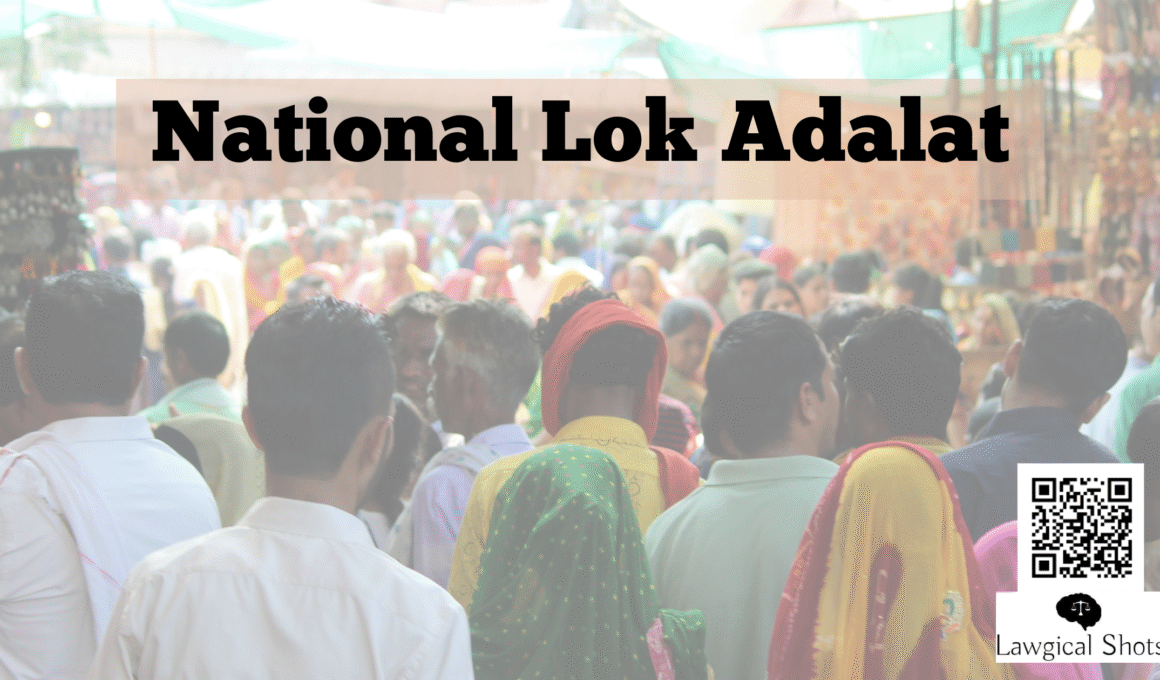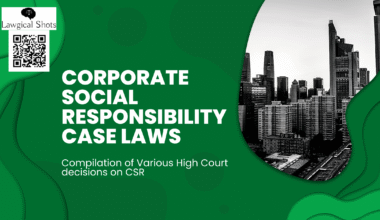A lot of people, mostly those in the Legal Fraternity, have been posting about National Lok Adalats from time to time. They promote it more for settlement of pending traffic challans. But what exactly is the National Lok Adalat? Is it a courtroom at the national level? But, wouldn’t it be too crowded to accommodate the settlement of disputes of a nation like India, once at a place? Let’s try and understand what happens in a National Lok Adalat and how different or convenient it is as against the usual, traditional system of justice system.
What is the National Lok Adalat?
Before jumping on to understanding what National Lok Adalat is, it is important to first have an idea of what Lok Adalats are. The prior concept is Adalat, which is the usual courts in India. A party approaches the Court for violation of rights, or enforcing rights against another, and then both parties put forward their side of the story and applicable laws. Thereafter, the Court decides whose side the law takes, and decides the matter accordingly.
Lok Adalats introduce an alternative dispute resolution method wherein parties seek amicable out-of-court settlement of disputes. National Lok Adalats on the other hand are country-wide event organized by the National Legal Services Authority (NALSA). A large number of pending matters and those at the pre-litigation stage are settled amicably at National Lok Adalats.
Law behind National Lok Adalat
The National Legal Services Authorities Act of 1987 lays the foundation stone for Lok Adalats. Section 19 of the Act states that every State, District Authority, Supreme Court or High Court, Taluk Legal Services Committee, may organize Lok Adalats.
Which cases can go to Lok Adalat?
As per Section 19(5) of NALSA Act, any case pending before the Court or any matter which is at the pre-litigation stage and within the jurisdiction of the Court for which the Lok Adalat is organized, can be settled in the said Lok Adalat. The sub-section makes it clear that no matter pertaining to a non-compoundable case can be settled in Lok Adalats.
Cases dealt by Lok Adalats are:
- Compoundable criminal cases;
- Cheque Dishonour cases (Section 138 of NI Act);
- Traffic Challans;
- Matrimonial cases (except divorce);
- Money Recovery cases;
- Land acquisition cases
- Labour disputes;
- Motor Accident Claims;
- Service matters;
- Public Utility Service disputes – electricity, water bills, etc.;
- Revenue cases;
- Civil cases of tenancy, specific performance, easement rights, etc.
How to settle traffic challan in Lok Adalat?
If you have some pending traffic challans, they can be settled in the Lok Adalat. If not waived, the amount of challan to be paid is usually reduced significantly which does not take a toll on your pocket. All you need is a print out of those challans (pending for the past 3 months or more), a copy of vehicle registration certificate, driver’s license, and registration at the District/Taluk Lok Adalat.
National Lok Adalat Date
The National Lok Adalat Schedule 2025 reflects that the first one was conducted on March 8, second on May 10, 2025. The third and upcoming National Lok Adalat 2025 will be held on September 13, 2025. The last National Lok Adalat of the year will be held on December 13, 2025.
National Lok Adalat Token Registration
In order to bring a care for settlement before the Lok Adalat, parties need to get token registration. This can be done online as well as offline. They need to bring relevant documents and visit the designated counter in Courts for registration form and provide necessary details. Online websites are available but their functionality remains in question most of the times. If you are able to access the Lok Adalat website for your State’s National Legal Services Authority website, it is convenient to register online. Provide all the necessary details in the registration portal and submit.
What are the benefits of National Lok Adalat?
The aim behind the law for the National Legal Services Authority introducing the concept of Lok Adalats was to reduce the burden of Courts. It further brings speedy and cost effective resolution of disputes. There are higher chances of promoting harmony among parties while providing access to justice for all without much legal expenses. The most important part is the decisions of Lok Adalats, including National Lok Adalat, are arrived at through mutual settlement, and thus binding upon the parties. This brings a force equivalent to that of Court decree.








